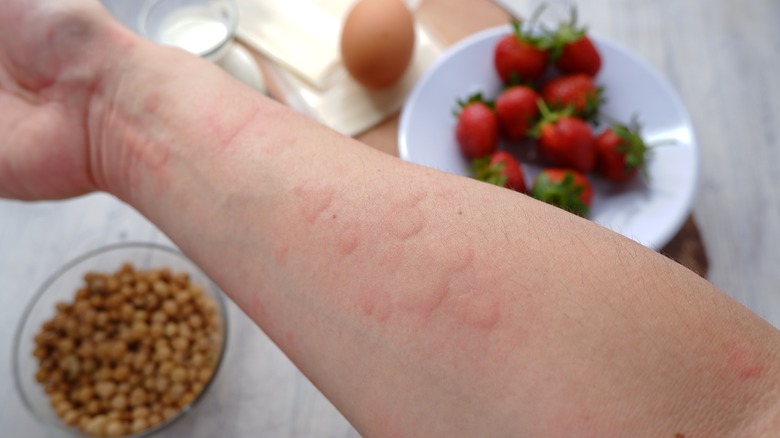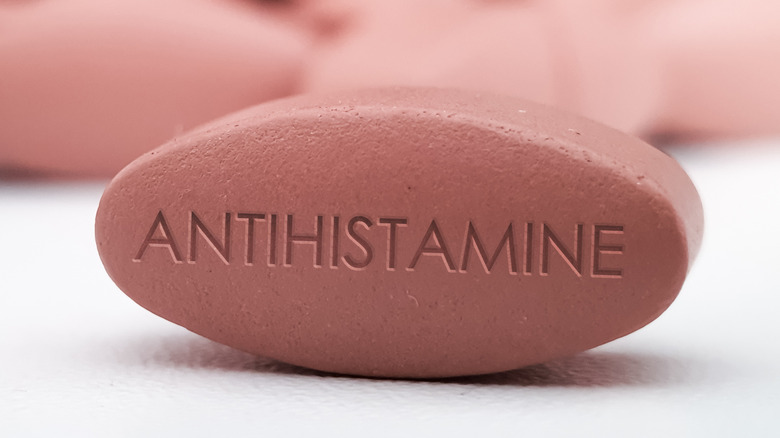How To Treat Chronic Hives
Hives, also known as urticaria, cause red scars or marks to appear on the body as a result of a reaction on the skin, according to Mayo Clinic. A breakout of hives is typically temporary and disappears when the effects of the reaction start wearing off. If you have chronic hives, these welts can last for about six weeks and reappear frequently throughout the year. As itchy and painful as they might be, currently, there's no known specific cause of hives, reports the Cleveland Clinic. However, they are more common in people who have autoimmune diseases. Chronic hives may cause swelling deep within the tissues and affect the face, genitals, and limbs. According to the American College of Allergy, Asthma, and Immunology, hives affect about 20% of the population. They may appear after you consume a food you're allergic to, such as peanuts or shellfish. Other times, hives can be a result of an insect bite or a side effect of certain medications.
How to ease symptoms of chronic hives
Chronic hives are best treated by using antihistamine medications, per WebMD. These drugs inhibit the production of histamine, a compound that erupts allergic reaction symptoms as a part of the body's immune system. Your doctor might prescribe non-drowsy capsules or the ones that are more suitable for nighttime because of their sedative effects. Most over-the-counter meds, such as fexofenadine or diphenhydramine, are often prescribed for diminishing histamine, and daily consumption is necessary, per WebMD.
There are also some home remedies that can help ease the chronic hives symptoms. For starters, you may want to avoid being in heated environments, such as a hot room, and avoid taking hot water baths (via American Academy of Dermatology Association). Both can trigger severe inflammation. Instead, use a cold compress, such as an ice pack, to get relief from itching. Another way to relieve symptoms of chronic hives is to wear loose-fitting clothes, according to the American Academy of Dermatology Association. Tight clothes often stick to the skin and worsen the itching.


